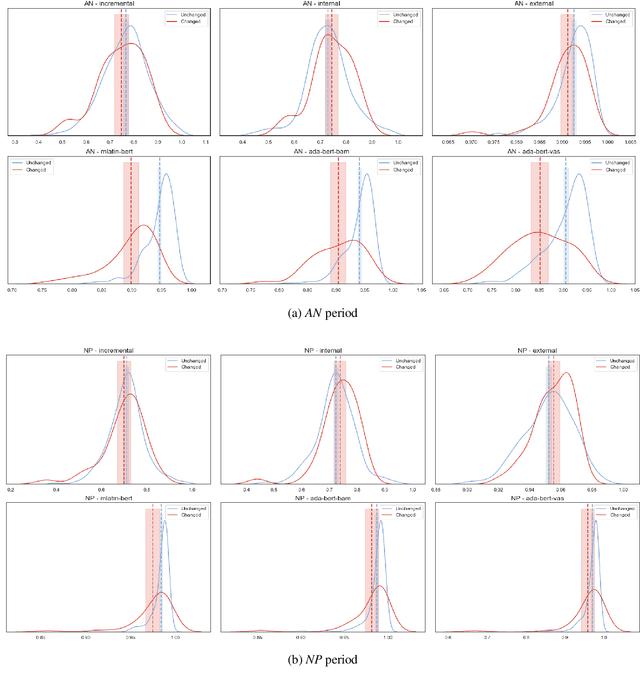Comparative Analysis of Static and Contextual Embeddings for Analyzing Semantic Changes in Medieval Latin Charters
Paper and Code
Oct 11, 2024



The Norman Conquest of 1066 C.E. brought profound transformations to England's administrative, societal, and linguistic practices. The DEEDS (Documents of Early England Data Set) database offers a unique opportunity to explore these changes by examining shifts in word meanings within a vast collection of Medieval Latin charters. While computational linguistics typically relies on vector representations of words like static and contextual embeddings to analyze semantic changes, existing embeddings for scarce and historical Medieval Latin are limited and may not be well-suited for this task. This paper presents the first computational analysis of semantic change pre- and post-Norman Conquest and the first systematic comparison of static and contextual embeddings in a scarce historical data set. Our findings confirm that, consistent with existing studies, contextual embeddings outperform static word embeddings in capturing semantic change within a scarce historical corpus.
 Add to Chrome
Add to Chrome Add to Firefox
Add to Firefox Add to Edge
Add to Edge